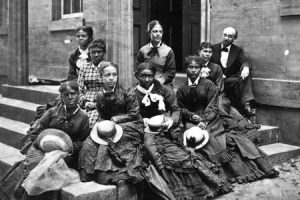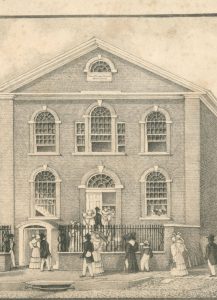The Unsung Voice of the Harlem Renaissance: Georgia Douglas Johnson
2 min read
When most people think of the Harlem Renaissance, names like Langston Hughes, Zora Neale Hurston, and Claude McKay dominate the conversation. But Georgia Douglas Johnson stood nestled between the spotlights, and her words dared to name the pain that others ignored.
Born in 1880 in Atlanta, Johnson was not only a poet but a playwright, educator, and key cultural figure who hosted one of the most important literary salons in Washington, D.C. Her home became known as the “S Street Salon,” a haven for Black artists, writers, and thinkers—many of whom would go on to define the Harlem Renaissance.
Yet despite her contributions, Johnson has often been left out of the official canon because she wrote about things others refused to touch: lynching, grief, motherhood, and the interior lives of Black women. While others romanticized the Renaissance, she put its shadows into stanzas.
A Different Kind of Resistance
Johnson’s poetry wasn’t loud or performative. It was quiet. Steady. Daring in its intimacy.
Her 1918 debut, The Heart of a Woman, is both personal and political. In it, she writes:
“The heart of a woman falls back with the night,
And enters some alien cage in its plight…”
This was the lived experience of Black women trapped between the expectations of society, marriage, and motherhood. While many male poets of the Harlem Renaissance explored racial uplift and rebellion, Johnson peeled back the skin to expose the emotional and spiritual costs of simply surviving.
Her “lynching plays” were among the first dramatic works to tackle the horrors of racial violence, long before it became acceptable to do so. These plays were often censored or ignored. But she wrote them anyway.
Georgia Douglas Johnson was a bridge—between generations, between genders, between forms. Her work made space for future voices like Gwendolyn Brooks, Nikki Giovanni, and Audre Lorde.
She wrote when it wasn’t fashionable to be a Black woman with a voice.
She hosted when doors were closed elsewhere.
She persisted when the world wanted her quiet.
Today, as we wrestle with old wounds and new reckonings, Johnson’s words still strike the heart like a bell in fog. Muffled at first. Then unmistakably clear.








